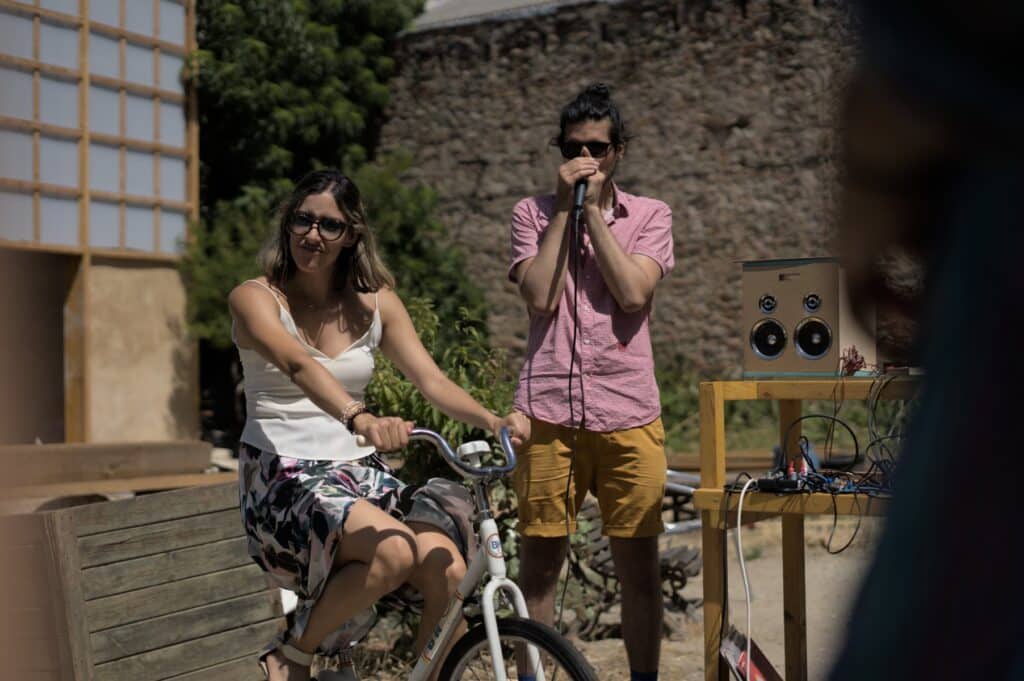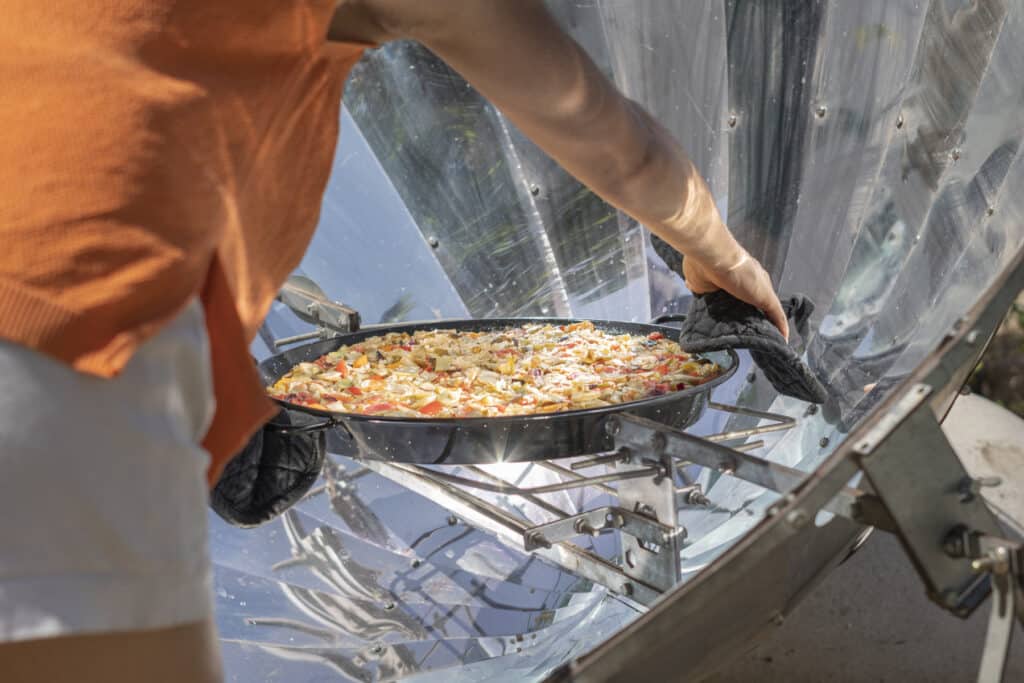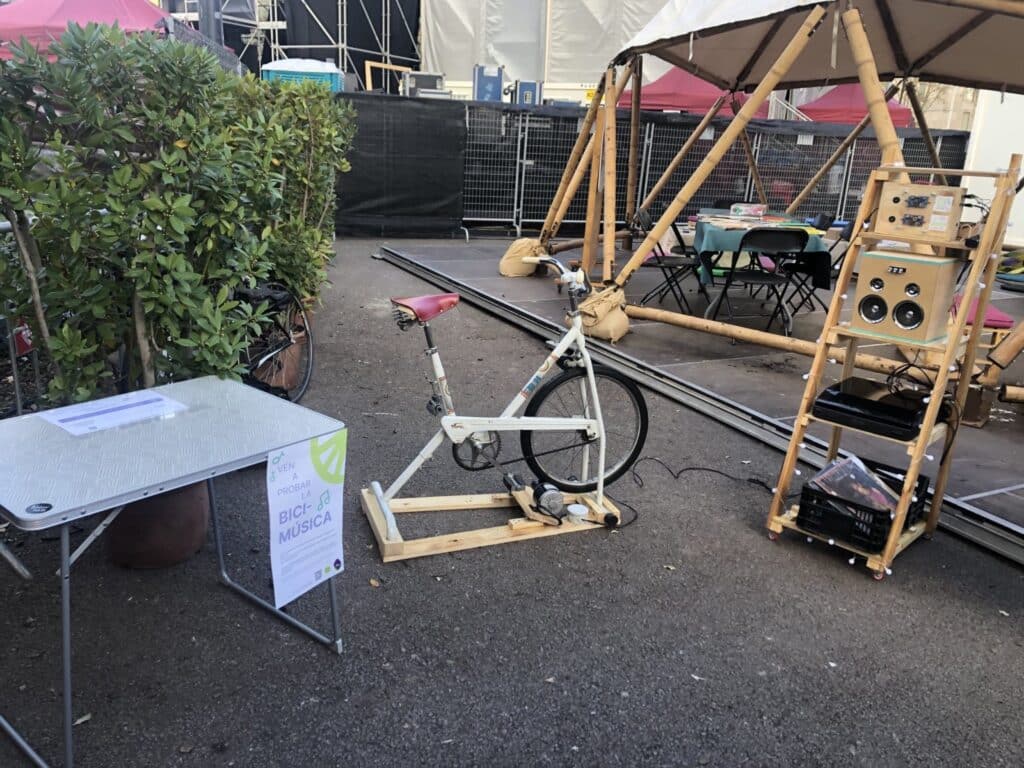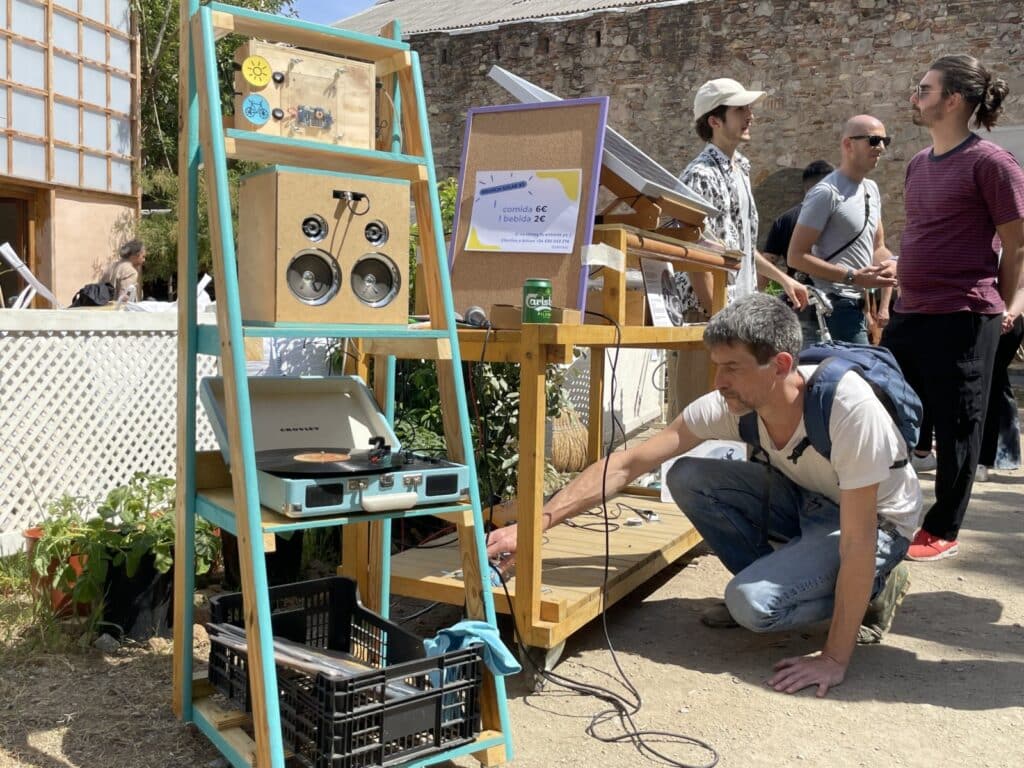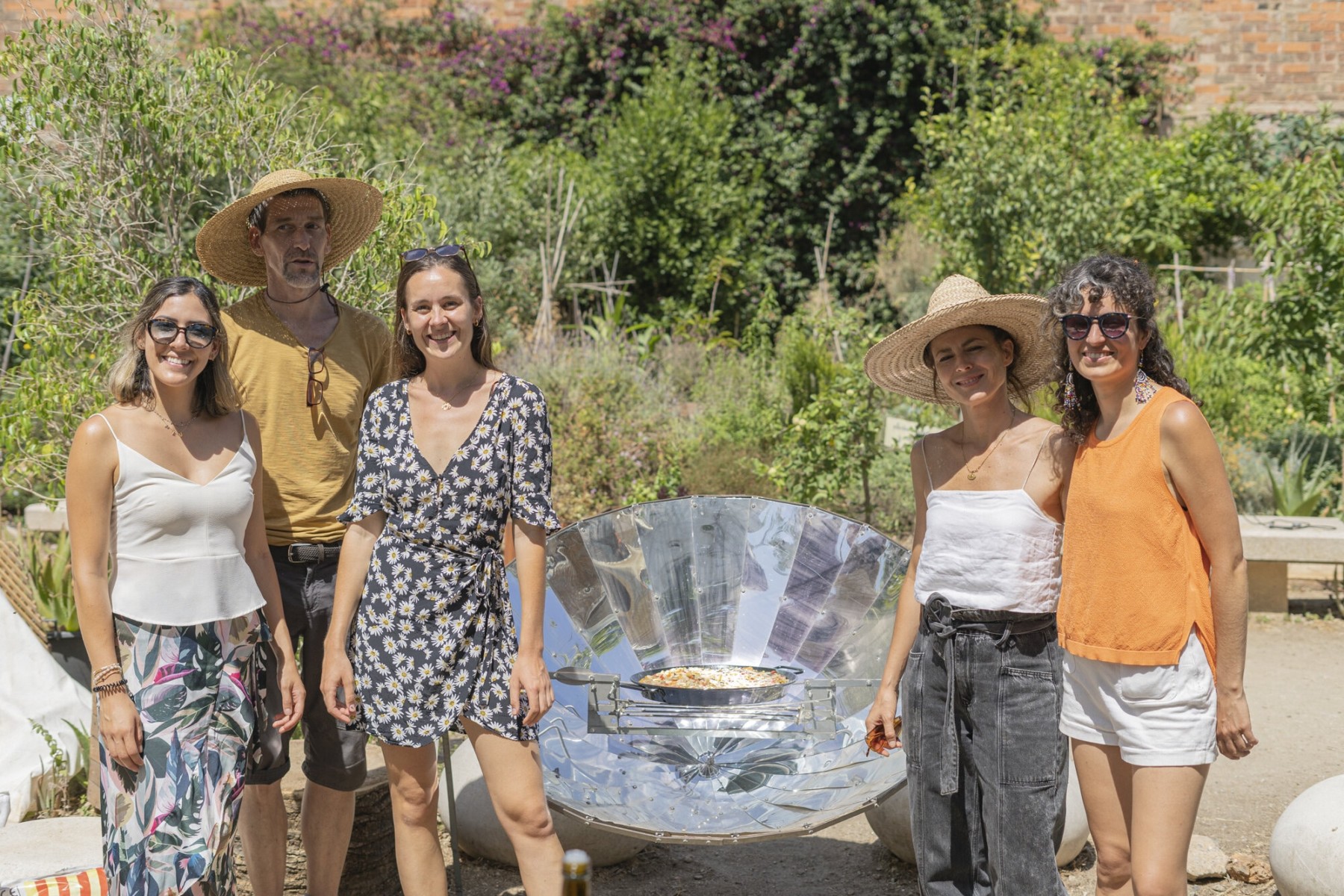
Slow is the new fast
Resilient lifestyles to change the way we do things and tackle emergent needs.
Introducing Slow Lab – a collective project brought to life by MDEF alumni Audrey (France), Gerda (Germany) and Paula (Mexico). Born during their Master’s studies, Slow Lab has been continuously growing ever since. Through redesigning tools frequently used in our everyday lives, the project paves the way for a more sustainable future that is less dependent on technology.
Meet you at Slow Lab, the project at the intersection of slow movement and low-tech. But what are those? By slow movement we understand the current that promotes the slowdown of our fast-paced lifestyle. At the same time, low-tech presents an alternative approach to technology that creates useful and sustainable products that are able to be easily repaired or recycled.
When did it all begin? Slow Lab came to life in Barcelona while the trio was taking the Master in Design for Emergent Futures. The Master supported the project’s development with its unique approach based on a methodology that encourages designing from a first person perspective. By using the Atlas of Weak Signals tool, students identify what they find personally important and worth fighting for. Their individual reflections get connected between each other’s personal and professional identities in order to create a collaborative project that they connect with.
“During MDEF we learned a lot about digital fabrication as you can see in our low tech product line. We were working a lot with electronics and also community engagement. We became better at connecting and contacting people.“
By mixing their personalities, Audrey, Gerda and Paula laid the foundations of Slow Lab. Basing their project around slow movements, the trio of creatives works towards bringing more awareness to our daily lives and habits. Their product line, inspired by ancient techniques, aims to show us different ways we could use to be more conscious about the environment and ourselves. By questioning and redesigning some of the tools we use in our daily lives, the project contributes to society by making it less dependent on high technology. Their work takes away bit by bit the myth that for something to be sustainable, there is a need for substantial money or effort to be invested.
A product developed by Slow Lab is “Bici-Música”, a bike which produces energy in order to play music. It has been the center of attention of many social events organized by the collective. If you haven’t had the chance to be part of those events, picture them like this: people brought together under the sun, talking, cooking, listening to music powered by the bike, spreading the message of a more resilient lifestyle.
A major focus of Slow Lab is the topic of food. They look into this daily necessity searching for better approaches to the way we cook our food that would also shorten the amount of time we spend on it. These changes could result in a substantial impact on how we go about our everyday lives. Through better, simplified and accessible ways, Slow Lab shows us possible means of using what is already available to us in a smarter way. Most importantly, the project is presenting us with solutions that are actually realistic to integrate into our daily routines.
The trio has been developing their project in the space of Akasha Hub Barcelona. A place shared with many people all of which are running their own creative projects that all have one thing in common: implement changes in order to make a positive impact on society. Working with such a supportive community has a positive impact on all of its members – not only does it mean that you can find help when you need to, but most importantly, it’s essential for engaging in professional collaborations.
Never alone: Slow Lab has created many events like Solar Brunches that open important discussions around the topics of slow movement and slow tech, among others. They do it working together with ConnectHort, an urban gardening space, and Kris, from Low Tech magazine website, which is powered with solar energy.
Another recent collaborative endeavor comes between Slow Lab, BAM and Low Tech Magazine, mixing together their research in order to design and build the “House of the Future”: a prototype that is 100% carbon neutral. The house is intended to reconnect humans to the seasons and the weather, powered only by locally available energy sources. Made by natural and reused materials, its activities are dependent on the weather, the seasons and the community of people occupying it. The project aims to help visitors become more aware of how much energy our modern life consumes. The new collaboration also leads us to question what we really need and show that the alternatives are not only deprivation but can be a source of happiness.
It is exactly through collaborations that Slow Lab flourishes, in a similar way as it all started at MDEF. Following this journey, the project trio has a few recommendations to their past selves while studying the Master program:
- Enjoy every class and every new knowledge gained, even if it can feel overwhelming sometimes.
- Appreciate the great opportunity to grow and expand your personal community.
- Be open to changing your perspective and mindset.
- Approach things more critically.
- Be present.
But what about the future of Slow Lab? Audrey, Gerda and Paula are always searching for new possibilities for the project to grow and most importantly they are giving it the time to do so. Make sure to participate in their social events and help in opening the conversation around the integration of slow tech products into our (slow) everyday lives.
Do you also want to change the future? Learn about the MDEF master program here
